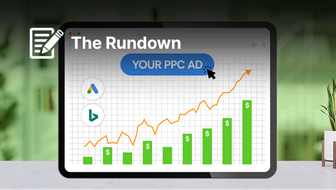Is your law firm website guilty of bad SEO?
I’ve witnessed it far too many times.
Law firm got bad advice.
The law firm didn’t do any link building.
The law firm didn’t add any content – or, if they did create content, it ended up being incredibly similar to other content already on the website, low quality, and without purpose.
Basically, their websites are just broken. Broken links, broken redirects, broken everything!
The result of all this bad SEO? Not enough traffic due to poor organic search visibility.
Sound familiar?
But now isn’t the time to pass judgment. Now is the time to get it right.
Ready to find out how?
You’ll need to get links that drive traffic to your website. You’ll also need to get your technical SEO right.
A content strategy? Yep, you’ll need that. And you’ll also need to do some good old-fashioned marketing.
Here are five ways you can bail out your website and start driving more traffic and results. Now.
1. Connect YouTube & Your Website Correctly
So many lawyers are creating and posting useful and helpful videos on YouTube.
Yet many law firms are failing to link strategically from their YouTube to their website.
This is a huge mistake. These are pretty much the easiest links you can get!
YouTube is one of the most popular websites, with more than a billion users every month.
Any link from YouTube is valuable. Although YouTube links may be nofollowed, remember our goal is driving traffic. We’re not worried about rankings right now.
Two things to do here:
- Make sure you link to your website from your YouTube channel.
- Go through any videos you have posted. Within the description, be sure to link to the most relevant page(s) on your website, whether it’s a practice area page, a blog post, or your FAQ page.
A link in one of these places might just send you your next client.
2. Do an SEO Audit & Make the Fixes
An SEO audit can uncover issues that are hurting your organic search visibility and website performance.
After completing an audit, and implementing all the necessary fixes, we’ve seen website traffic increase by anywhere from 250 percent to up to 2,000 percent!
These are the 10 most common errors we discover doing audits for law firms:
- Overall bad advice from previous marketing partners.
- They never set up Google Search Console, so they don’t know if Google is having problems crawling and indexing the site.
- Too many toxic links have been built over years and may not have been disavowed.
- Many unnecessary 301 redirects and broken links.
- Not paying attention to page speed and website performance.
- The website isn’t responsive or mobile-friendly.
- No one has set up AMP versions of webpages.
- Images aren’t compressed.
- Inconsistent NAP profiles throughout the web.
- Multiple pages competing for similar keywords, resulting in cannibalization. This problem is huge.
How can so much go so wrong?
Many law firms hire a web designer to make their website.
But a web designer and SEO web developer are two different skills sets.
So if you’re going to hire a web design agency to build your website, you also need an SEO web developer who will ensure the website is coded correctly and correctly follows website navigation best practices.
Bonus tip: While you’re making all your technical fixes, make sure to add Attorney schema to your website.
Schema can indirectly help your rankings, because it helps Google better understand your pages, and it can help improve targeting.
3. Foundational Content
The best way to get traffic is to rank well in search engines for the right keywords, whether it’s for certain locations or practice areas.
To accomplish this, you need a foundational content strategy.
There are three types of content pages that will help you rank:
- Primary: These are your content pages that target high-value keywords relevant to your practice areas.
- Secondary: These are your content pages optimized to rank for keywords relevant to your services.
- Tertiary: These are your content pages that target long-tail keywords.
You can read more about foundational content in my previous post, 4 Pillars of a Successful Legal Content Strategy,
4. Answer Your Reviews
Consumers rely on online reviews when choosing a lawyer.
One simple thing that law firms can do themselves is respond to reviews in a timely manner.
This means responding both to positive and negative reviews.
Google puts a lot of weight on reviews, so definitely respond to any on Google.
If you can increase your rating (ideally you want to shoot for a 4- or 5-star rating), that should also impact the number of potential clients who click on and visit your website.
But also answer your reviews on sites like Avvo, Yelp, and anywhere else your firm might get reviewed.
5. Email Strategy
Another foolproof way to drive traffic: email.
Here are three types of email campaigns that work well in the legal industry:
- New lead follow-up campaign: Show a client or a prospect what the next steps are. You could show them a journey through your law firm (e.g., with a video), explain what the next steps would be, or what it takes to hire a lawyer.
- Lead magnet: Give away an ebook or premium piece of content (e.g., 6 Steps to Winning a Personal Injury Case, How to Hire an Estate Planning Lawyer).
- Capture reviews from past clients: As soon as someone’s case is settled, they should fall into an email campaign asking for a review (or maybe taking a survey about their services). As mentioned in the last section, adding more positive reviews can only help drive more traffic to your site.
It’s worth investing in a good email management system, especially one that is also a CRM and has the ability to create email autoresponder campaigns.
Key Takeaways
All five of these things can help you immediately if you need more traffic and SEO visibility.
Out of all of these options, I highly suggest you start with the SEO audit. You need to figure out the health of your website before you start adding any content or links. Think of it like going to the doctor before you start a new workout routine.
Once the audit is done, fix everything you need to. Then build out your content strategy.
Then it won’t be long until you start seeing much greater results from your SEO efforts.
More Industry-Specific SEO Resources:





